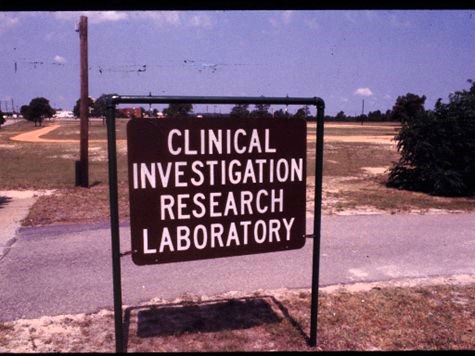Biomedical Research Laboratory

About
The function of the Biomedical Research Laboratory is to provide laboratory space for the development and execution of biomedical research and scholarly activity. The laboratory staff includes a mix of military and civilian biomedical scientists with expertise in the basic biomedical laboratory sciences. While the military scientists serve as rotating staff members, the civilian scientists are permanent and provide project continuity.
Facilities
The laboratory is located in building 38705 (208 7th St) in a 10,000 square-foot building that was constructed in 1999. It houses the research laboratory space, a vivarium, and an animal surgical facility.
Personnel
The biomedical research laboratory is staffed with doctoral level scientists with expertise in pharmacology, chemistry, cell biology, microbiology, and immunology. The laboratory staff guides the development of research protocols, the writing of scientific papers, and the execution of scientific experiments.
Capabilities
The biomedical research laboratory can perform studies in biomechanics, molecular biology, cell biology, and protein chemistry. A microscope room with confocal and scanning electron microscopy is available. Two cell culture suites including biological safety cabinets and incubators are present. There is a general molecular biology area equipped with the ability to perform PCR analysis, Western Blotting, ELISAs, and MagPix assays and a microbiology facility equipped with incubators, a biological safety cabinet and a bioreactor system available for use. Mass spectrometry and specimen radiology are also available.
Scientific Review Committee
The scientific staff of the biomedical research laboratory are also members of the scientific review committee (SRC). It is the role of the SRC to review new studies prior to submission to the institutional review board (IRB). This review is intended to determine the scientific validity of the proposed study, the value of the study to the U.S. Army Medical Department and the feasibility of study completion within the confines of necessary financial, spatial, and temporal constraints.
EAMC Human Research Protections Office (HRPO) web page